One of the first rules we learn as children is to not take what doesn’t belong to you. But not everyone adheres to that rule, especially when it’s about food. And when it comes to stealing someone else’s lunch at work, one out of five workers admit that they’ve eaten someone else’s lunch out of the office fridge.
When one netizen was confronted with one such lunch thief, they decided to spice things up. Literally. To out the office glutton, they added some extra spice to their lunch and even labeled it “very spicy.” When the thief got an upset stomach, colleagues reprimanded the netizen. So, they asked the Internet: whose fault was it really?
To get more perspective on this matter, Bored Panda asked Louise Carnachan, an organization development consultant and author of Work Jerks: How to Cope with Difficult Bosses and Colleagues, for her opinion. She kindly agreed to tell us how people can deal with lunch thieves in the office more effectively.
More info: Louise Carnachan | LinkedIn | Facebook
Having your lunch stolen at the office might be one of the most upsetting things one can experience at work

Image credits: freepik (not the actual photo)
This person decided to trick the office lunch thief by adding some extra spice to their meal


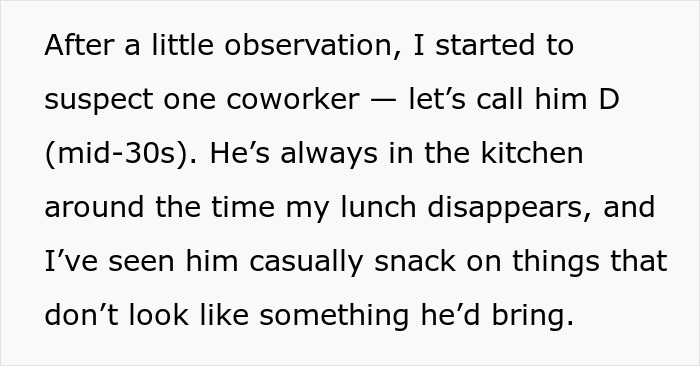
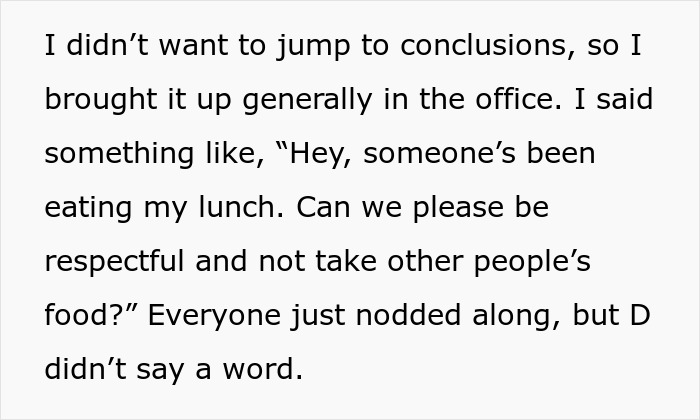

Image credits: freepik (not the actual photo)
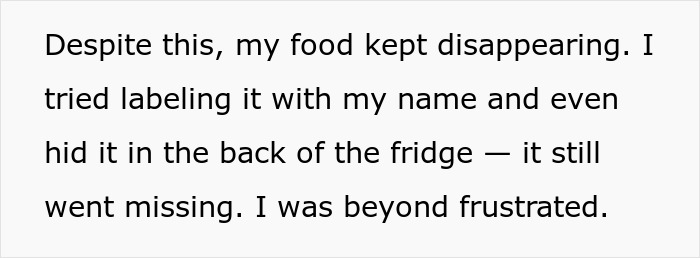
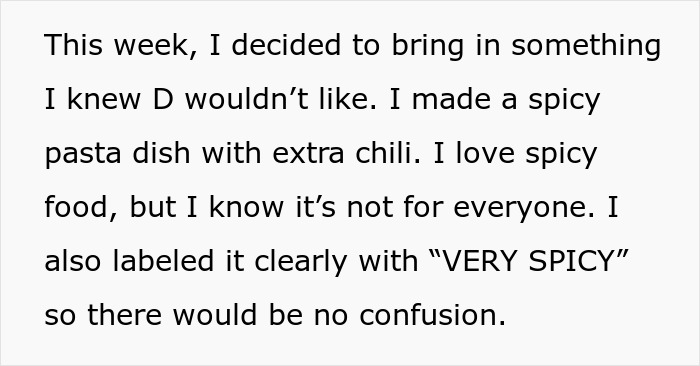
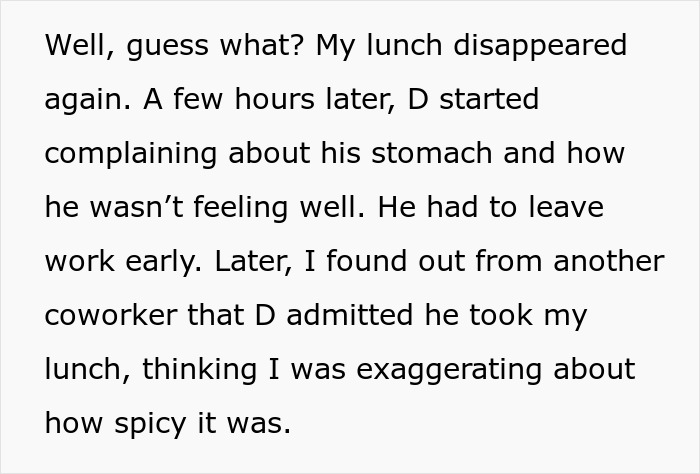

Image credits: Getty Images (not the actual photo)


Image credits: Imyourvenus9
Workplace relationship consultant Louise Carnachan suggests confronting the thief directly if nothing else works
“It’s sad to think it’s gotten to the point where you need baby cams in the lunchroom to stop moochers from poaching their colleagues’ food!” Louise Carnachan, author of Work Jerks, commented to Bored Panda after reading this story.
She says that the Redditor handled the situation in the best way she possibly could. “General messages are rarely effective especially if you know exactly who needs to receive the message,” Carnachan observes. Plus, in this story, it seems that most of the office knew who the thief was, but everyone just accepted it as fact.
Unlike some commenters, Carnachan doesn’t think the OP crossed a line. “Making a dish that the offender wouldn’t enjoy hardly falls into revenge territory,” she says, adding that labeling the dish as spicy was actually generous.
“Natural consequences work—you ate something that wasn’t yours and it didn’t agree with you. Make a note for the future, and don’t take others’ food.” And the fact that the author was castigated by her colleagues doesn’t make sense either. “If the miscreant has an allergy, you’d think he’d pay closer attention,” Carnachan notes.
She suggests approaching the thief directly and saying something like, “Gee, D, I wonder if you know what’s been happening to my lunch since you always seem to be close by on the days it goes missing. Did you see who took it?”
The chances of getting a confession are slim, but at least they’d know someone was onto them. “Once he’d fessed up to another colleague, that was the time to approach and say ‘Stop it’—unless you want to ask what you should bring for lunch next week.”
Bringing a cold pack, keeping her lunch at her desk, and complaining to HR are all good solutions. But Carnachan wonders where the boss or the manager is in all of this. “I’d start there,” she says.
She also suggests considering the dynamic between the author and the lunch thief. The OP is a young woman and the lunch thief is a male, although of unknown age. If the two have a contentious relationship, something else might be at play.
If the colleagues don’t see an issue with stealing food, other workplace norms might be off as well
Although to some a stolen lunch from the office might not seem like a big problem, it’s still a sign of disrespect at the workplace. “Taking food may appear to be benign compared to other theft because it’s kind of like acting out at home with siblings,” Carnachan says.
“Frankly, it’s still stealing money, time, and sustenance from someone. Would it be okay to pilfer from their wallet or take their lunch tray if you could get away with it?” she suggests considering.
The bigger issue here might be that the OP’s coworkers don’t think food theft is a big deal. “Is it okay in that team to claim credit for other people’s ideas? Do they take supplies that belong to other people or the company? You’d hope that you don’t have to remind adults not to steal but it appears that the norms of this team (and perhaps the organization?) are hazy on this issue,” Carnachan observes.
“People who feel like they don’t matter, aren’t respected, or that the company doesn’t support them will find ways to exercise personal control even if it’s in unhealthy ways,” she adds. “High-functioning teams don’t take from each other. They add to each other’s talents.”
Instead, a good manager would look to enhance workers’ reliance on each other’s talents and showcase their strengths. A good workplace culture, according to Carnachan, is one where management recognizes their workers for their combined efforts. “That’s the workplace culture I’d want,” she says.
People didn’t think the author was at fault here: “He literally stole your food. He’s sick…”
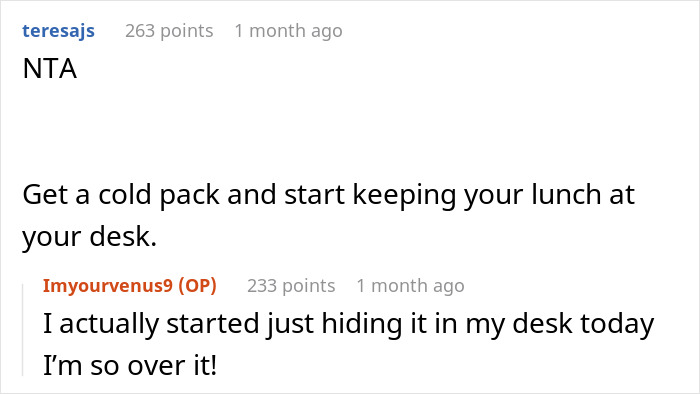

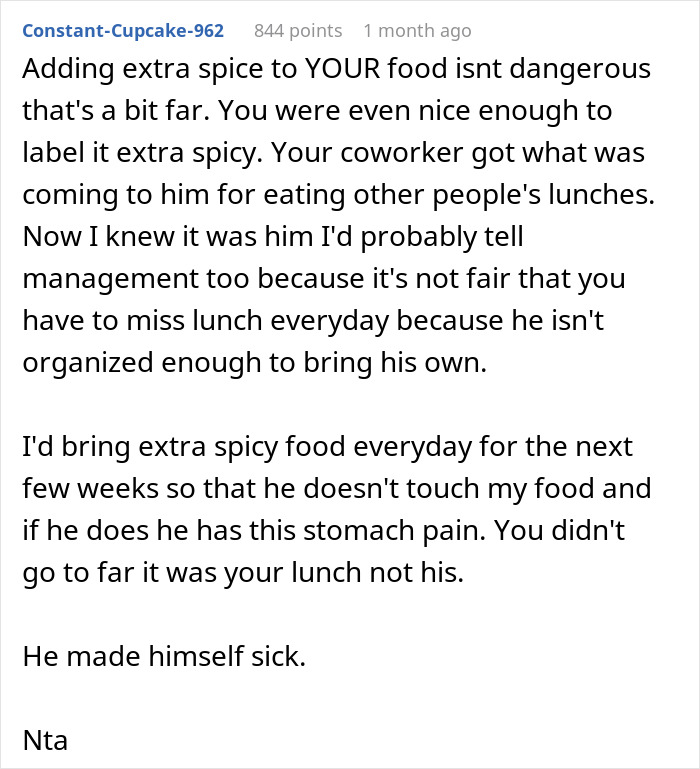

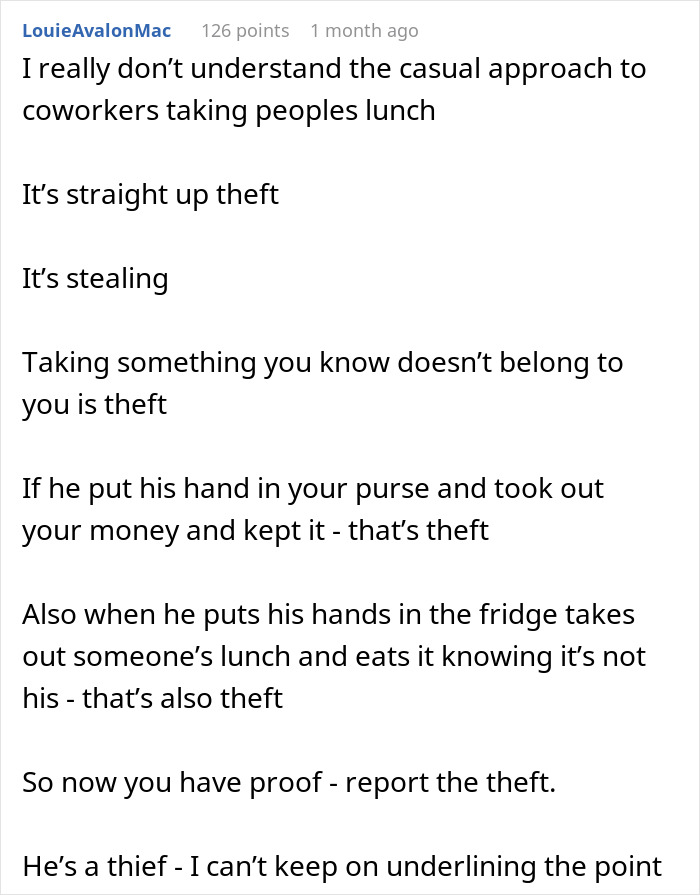
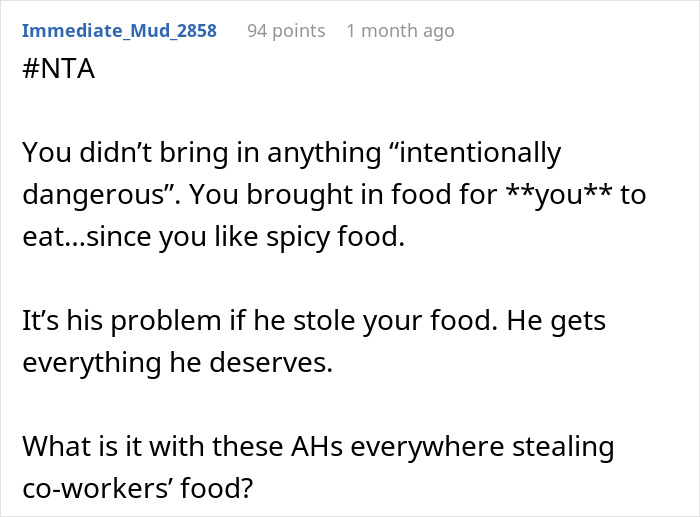

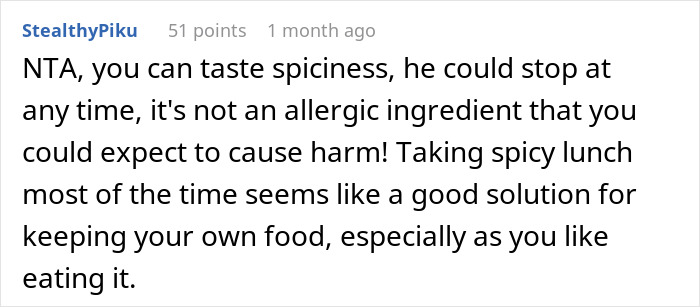
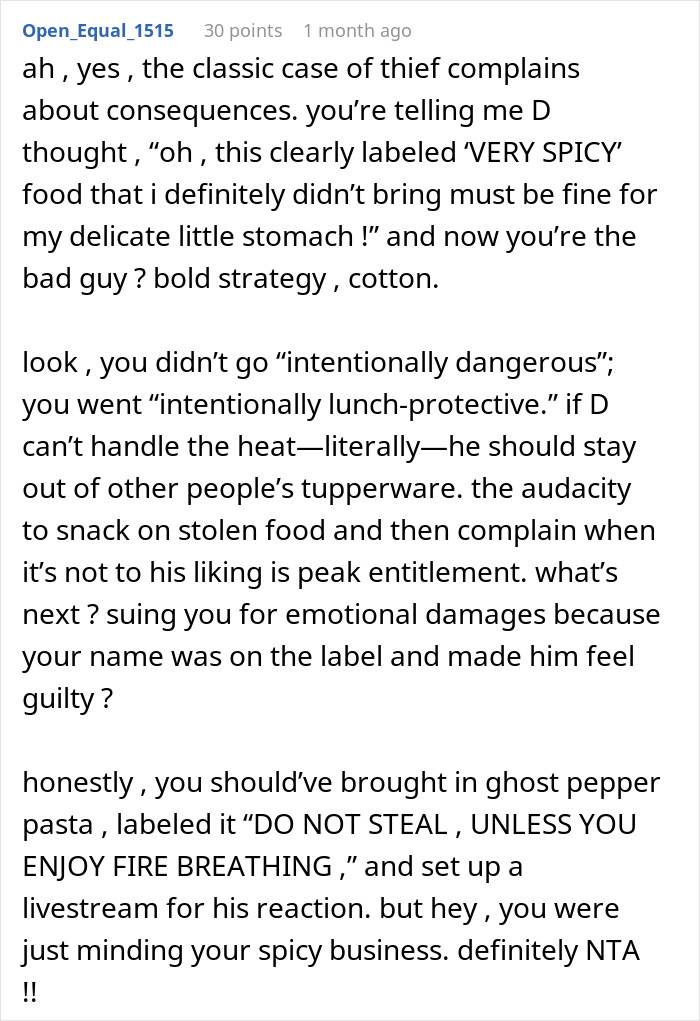
The post Woman Cooks Spicy Food And Puts A Warning Label, Still Gets Blamed For Food Thief’s Upset Stomach first appeared on Bored Panda.
from Bored Panda https://ift.tt/E5MQAlG
via IFTTT source site : boredpanda